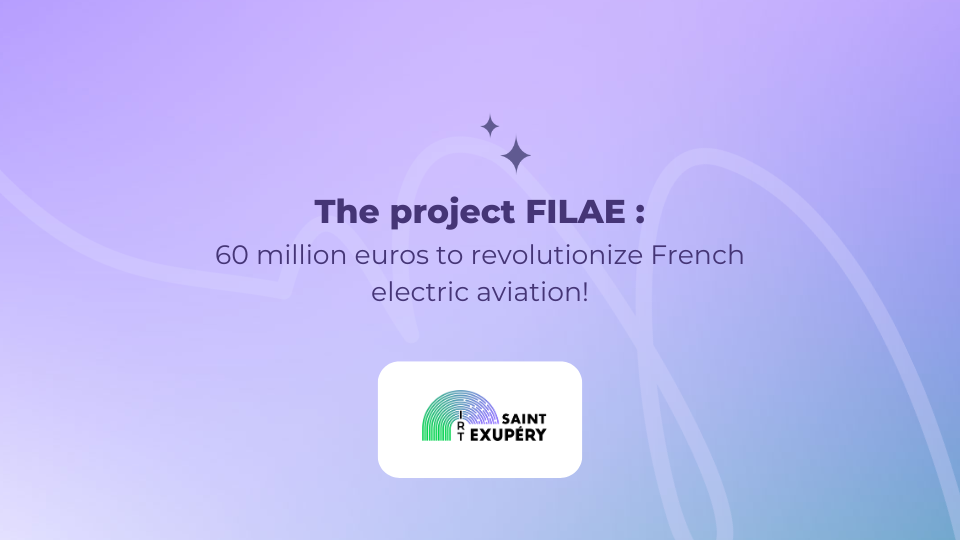IRT Saint Exupéry, in collaboration with ISAE-Supaéro and ONERA, has just announced the official launch of the FILAE program. FILAE stands for “FILière Aéronautique Electrique”, a major program to support the development of electric aviation in France. Financed within the framework of France 2030, this major program is in line with the objective of decarbonizing the aeronautical sector, which is committed to achieving carbon neutrality by 2050.
With a total budget of 60 million euros, FILAE aims to position France as a leader in the electrification of aviation. The program, which will run until 2031, will mobilize over 80 researchers, doctoral students, and post-doctoral researchers across 12 distinct research projects.
An innovative multi-sectoral approach
The uniqueness of FILAE lies in its collaborative approach, bringing together expertise from various industrial sectors: aerospace, automotive, and railway. “This program of projects is unique in that we are pooling strengths from several industries to optimize the electrification of aircraft,” emphasizes Lionel Bourgeois, Chief Technology and Science Officer at IRT Saint Exupéry.
The program is structured around three main areas: onboard power electronics, densification of electrical systems, and their lifespan. Six technological levers have been identified to improve the performance of the electrical chain, including “wide gap” electronic components, electrical materials, and energy storage.
First projects already underway
Two pioneering projects have already been greenlit by the Secrétariat Général pour l’Investissement (SGPI). The first, SiCRET+, with a budget of 6.7 million euros, focuses on the study of silicon carbide power modules. The second, GRINHELEC, with a budget of 3.2 million euros, aims to develop more eco-friendly aviation cables by replacing fluorinated insulators with bio-based alternatives.
Thanks to the IRT Saint Exupéry, FILAE represents a crucial step in France’s strategy to develop greener aviation, with the aim of producing the first French low-carbon aircraft by 2030. Beyond the purely technical aspects, the program also integrates environmental, societal and economic considerations, demonstrating a holistic approach to the ecological transition in the aeronautical sector.


